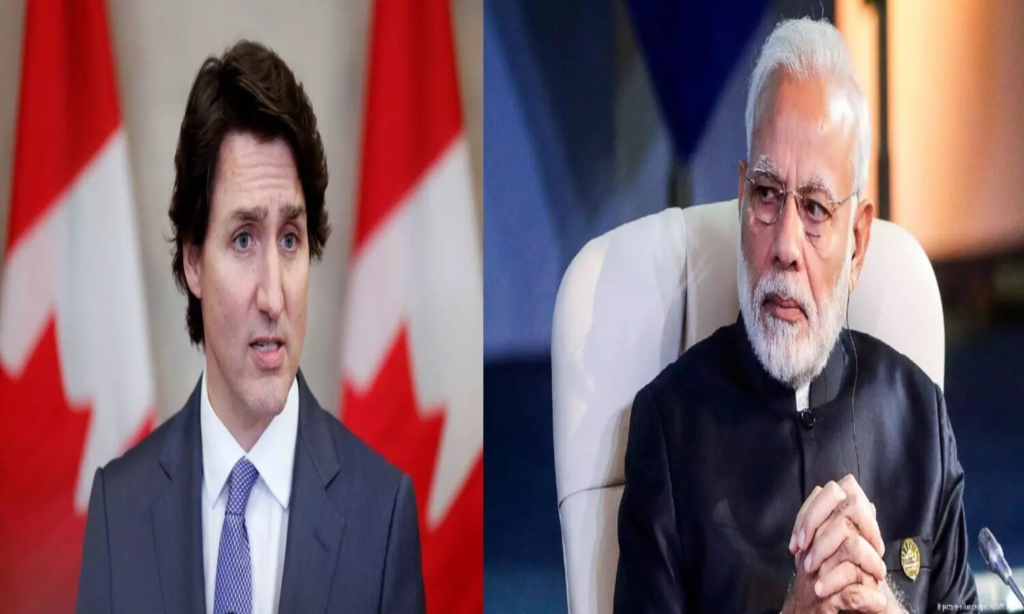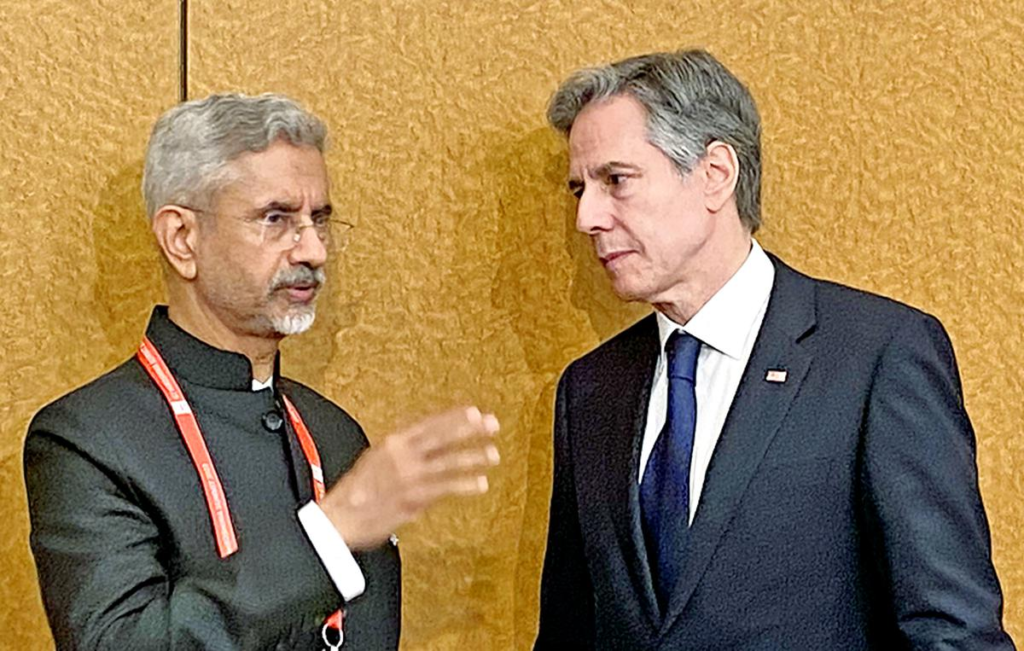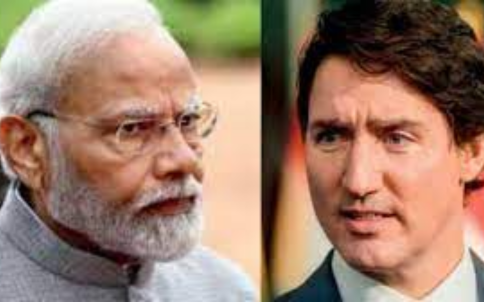Musings by Shekhar Nambiar
The past few weeks after the Delhi G20 summit have been taken up by Canadian Prime Minister Justin Trudeau’s antics accusing India of killing a Khalistani terrorist. The accusation comes without a shred of evidence.
The thing Trudeau has tom-tommed is the so-called intelligence gathered by the spy alliance ‘Five Eyes’, of which USA and Australia are part along with others including Canada, that it is alleged, points to suspected Indian involvement in the killing of Hardeep Singh Nijjar, chief of the outlawed Khalistan Tiger Force in June this year.

Nijjar killing repercussions
Reports have been doing the rounds of the police warning Gurmeet Singh Toor, a close associate of Nijjar, of a threat to his life. Sikhs For Justice, a pro-Khalistan activist group, has made these statements in public, and has appealed to step up the efforts for Khalistan.
In the midst of all this, it is not difficult to conceive of Pakistani ISI involvement to stoke anti-India sentiments.
Trudeau’s tirade follows India cautioning him against his support to Khalistani acts of violence and attacks on Indian interests.
Also read: Lest we forget the dakiya
Earlier India had made it abundantly clear in bilateral and other forums about Khalistani elements targeting Indian communities, diplomats and places of worship in Canada.
Diplomatic reaction
External Affairs Minister S Jaishankar said earlier that a “climate of violence” and an “atmosphere of intimidation” have been created against Indian diplomats in Canada. Reporting the situation, ‘The Financial Times’, citing reliable sources, wrote this week that India has asked Canada to reduce its diplomatic presence in India by 41, from 62 at present by October 10. No formal comment is believed to have been made so far by either Canadian officials or the Indian side.
It doesn’t take much imagination to figure out that in the murky world of terrorists, killings of this nature – if it was a murder as reported – could be due to a variety of reasons, including rivalry among internal factions or infighting. In a recent mystery killing in Karachi, a LeT terror operative was shot dead believed to be due to infighting within the Lashkar-e-Taiba.
Also read: Age not just a number anymore
EAM visits US
Minister Jaishankar made the National Statement to the 78th UNGA. The statement underlined the many challenges the world and the South faced. It also outlined the achievements of India as chair of G20 at the recent Delhi Summit, including the unanimous Summit Declaration and the African Union being able to participate, all under Prime Minister Modi’s leadership.

The Minister’s visit to New York followed his meetings with US Secretary of State Anthony Blinken in Washington, DC. The India-Canada face-off was discussed, with India making its position clear yet again. In an address to Indian-Americans at India House in Washington, Jaishankar is believed to have said that India-US ties “will go to the Moon, maybe even beyond.” Earlier both used to “deal” with each, now they “work together”, he noted.
A US official said that Blinken told the Indian side to collaborate with Canada for the probe into the Nijjar killing.
Also read: Biden, G20 & Bharat
Jaishankar made appearances on TV chats and had other engagements. Former US Ambassador Frank Wisner, in an Indian TV network panel discussion, did not mince words when he said that anti-India extremist elements were at work and needed to be dealt with sternly.

Trudeau lukewarm
Trudeau’s responses whenever India took these up were lukewarm, if anything, and almost seemed as if these were misdemeanours by naughty Khalistani elements.
Entreaties have fallen on deaf Canadian administrators, whereas it is evident that the extremists are going all out against India.
Canada has so far banned only Babbar Khalsa International and the International Sikh Youth Federation for activities inimical to India’s interests. India had urged that five other pro-Khalistani groups, proscribed under the Unlawful Activities Prevention Act and operating overseas, be banned.
Also read: Social literacy, education and life skills
India’s stance is as it ought to be. India has been at the receiving end of terrorist attacks in many forms, almost all Pakistani sponsored, from bombings in India’s teeming cities by sleeper cells, the dastardly attacks in South Mumbai’s hotels and a synagogue in the Maximum City’s plush Colaba downtown area being among several across India.
If it was openly plastering Delhi’s walls with separatist slogans advocating secession from India, in the mid to late eighties and even earlier in the 1970s, Queens in New York and New Jersey had cars displaying stickers by the Sikh Brotherhood openly declaring its intentions. The scars from the bombing of Kanishka and those who perished with the plane are too deep to be forgotten.

Pandering to extremists
Babbar Khalsa operating in Pakistan, India, North America and Scandinavia had acquired a notoriety of their own and that continues to this day.
Canadian politics have made it difficult for the current government in Ottawa to do anything but pander to extremist elements on their soil. This gives them the freedom to say or strike at free will.
Elections are not due until on or before October 20, 2025. Justin Trudeau, who is young, is in his third term as PM. If he is ambitious enough and there is nothing to show that he is not – with age on his side – Trudeau can hope to be PM for as many terms as he wants. Left to himself, he would want to join his more illustrious predecessors. William Lyon Mackenzie King, who was the longest serving head of government with a tenure of 21 years as Canada’s PM. Whether present day politics, with its pulls and pressures, will allow Trudeau to continue for many terms beyond three, or at least one more, remains to be seen.

Quebec separatism
Separatism and secessionist forces are a sticky point in any bilateral relations or otherwise. In Canada, the 1980 Quebec referendum called by Parti Quebecois (PQ) that sought public opinion for seceding from English-speaking Canada, voters rejected the independence proposal – by a whopping 59.56% to 40.44%. Ina later referendum in June 1995, voters said ‘No’ 50.58% to 49.42% ‘Yes’ – a narrower margin than in 1980.
The Quebec issue was a major domestic matter that the current prime minister’s father Pierre Trudeau, himself a Quebecer – a French dialect speaker, had to deal with. Pierre Trudeau ruled Canada for 15 years, in four terms.
Needless to add the separatist movement in Quebec brought in its wake a fair share of headaches to the national government.
As early as 1970, during the October Crisis (Crise d’Octobre) members of the Front de libération du Québec (FLQ) kidnapped the provincial Labour Minister Pierre Laporte and British diplomat James Cross from his Montreal residence.
So, you see, Canada is not immune to separatist movements, after all. It has a history of secessionist tendencies and a movement that literally shook it to the core, with separatists wanting to secede. Will the Canadian government be sensible enough and sensitive to India’s concerns on Khalistan extremism on its soil? Let us hope wisdom and better sense prevails.
Canada, go with God. Vaya con Dios!
Also read: Rover’s moonwalk sets India on course for space forays




